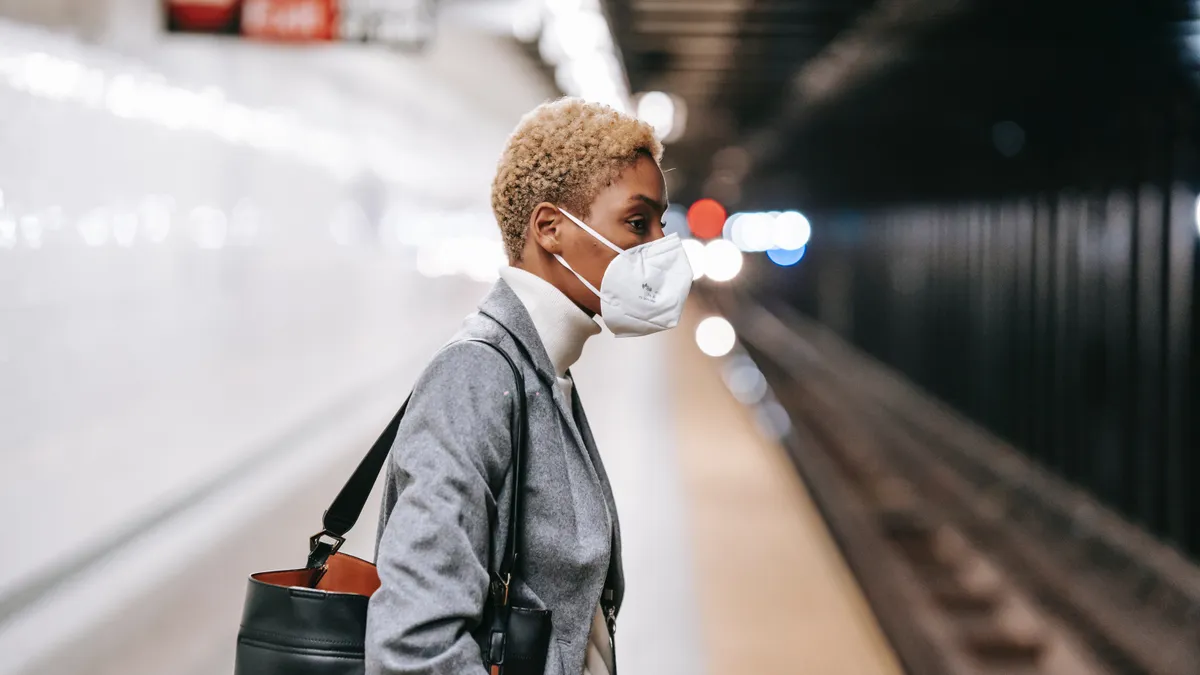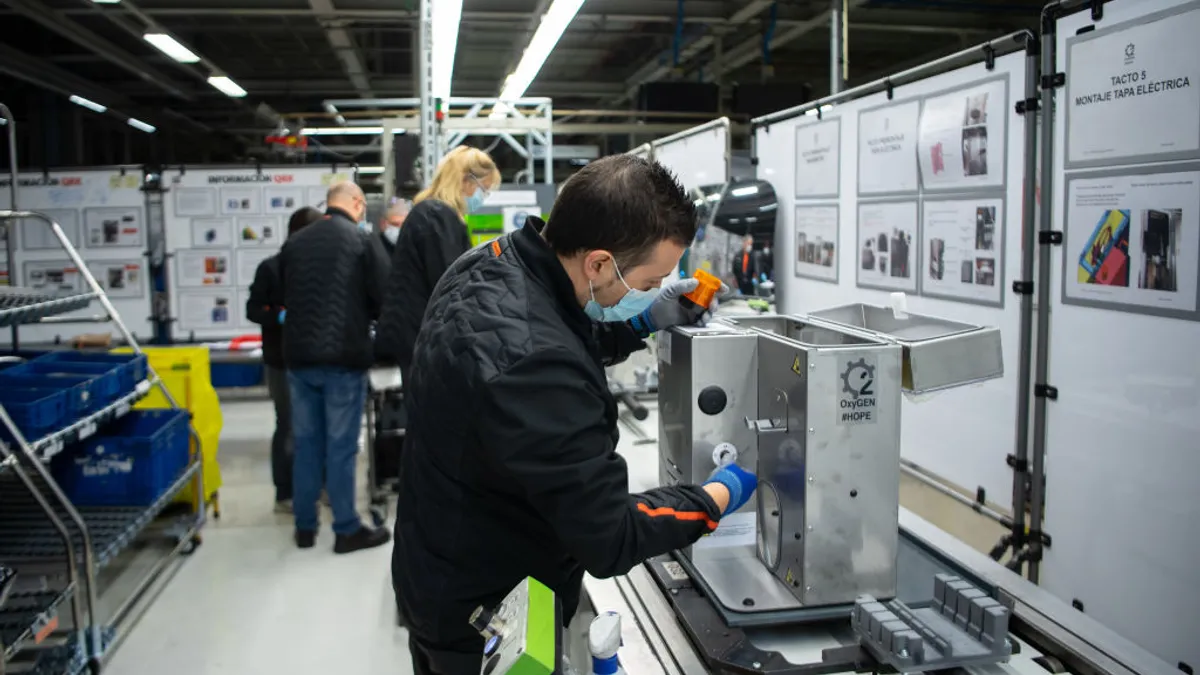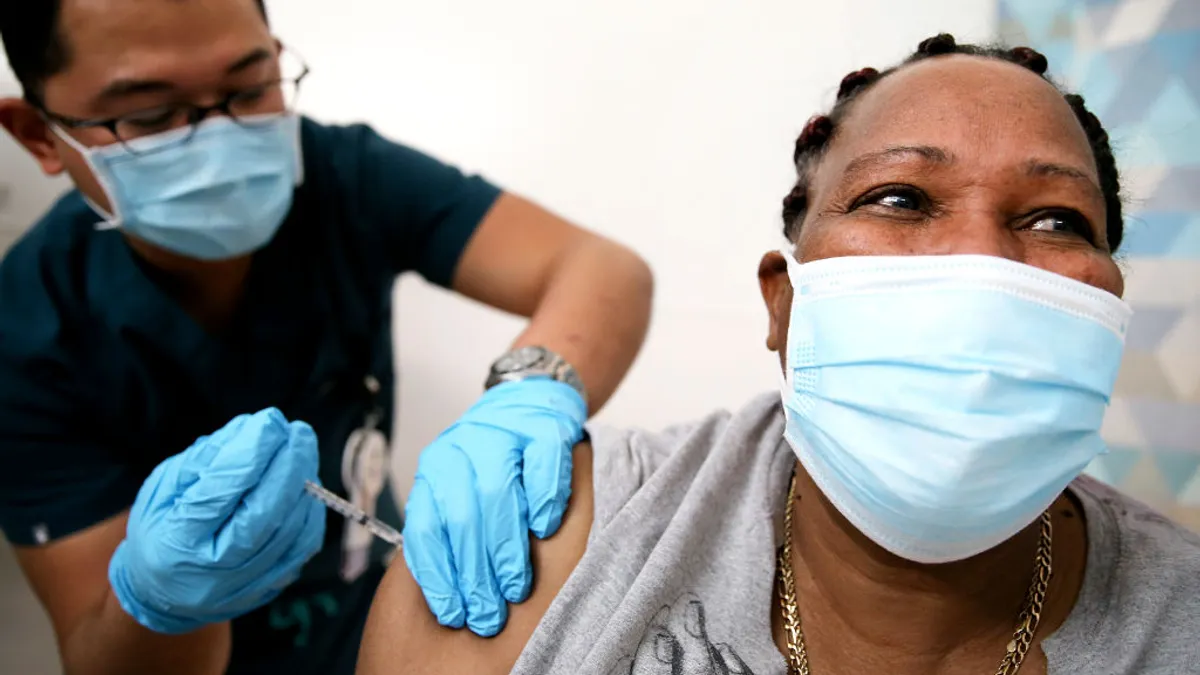Dive Brief:
- The return-to-work tug-of-war rages on: 24% of respondents for Randstad's "The Next Normal" survey said that workers have returned or will return on-site with modifications, such as staggered shifts or health screenings.
- While more than half of respondents to Randstad's survey, which interviewed more than 2,700 people, said workers have already returned on-site or indicated a hybrid or remote work model is in place, 28% of respondents said their workplace "did not leverage remote work" at all.
- Among employees who weren't able to work remotely, 72% said their employers had implemented COVID-19 safety standards as a response to COVID-19. Meanwhile, 28% of respondents said their companies did not change anything.
Dive Insight:
Randstad's report acknowledges that having workers return to the office full time may be appealing for certain employers, but it also highlights several risks. "For example, after so many professionals experienced the benefits of remote work, asking them to come back onsite five days a week will inevitably turn some off — and send them running to job boards as a result," the report read.
Concerns about workplace health practices are also top of mind for workers. Certain COVID-19 measures really hit home with Randstad respondents, while others were a flop.
Only 4% of respondents said that employee team scheduling, such as implementing A Team and B Team days, was the most important COVID-19 measure their boss had taken. Eighteen percent said Plexiglass dividers, 44% said temperature checks, and 63% said social distancing. But ultimately, 88% said mask mandates were the most important measure their employer had taken as a pandemic response.
Many HR professionals may feel pangs of concern regarding the Occupational Safety and Health Administration's vaccine mandate. The agency's emergency temporary standard (ETS) requires covered employers to "develop, implement, and enforce a mandatory COVID-19 vaccination policy." OSHA also issued guidance for workers to "undergo regular COVID-19 testing and wear a face covering at work in lieu of vaccination."
Speaking to HR Dive, legal experts highlighted the potential for employee turnover in light of the vaccination mandate. But as Randstad's survey suggests, more restrictive protection policies could actually be a draw for talent. Ultimately, it is a matter of workplace safety. "Companies that understand this and take action will benefit, while those that don't will struggle to hire and retain talent," the report said.


















